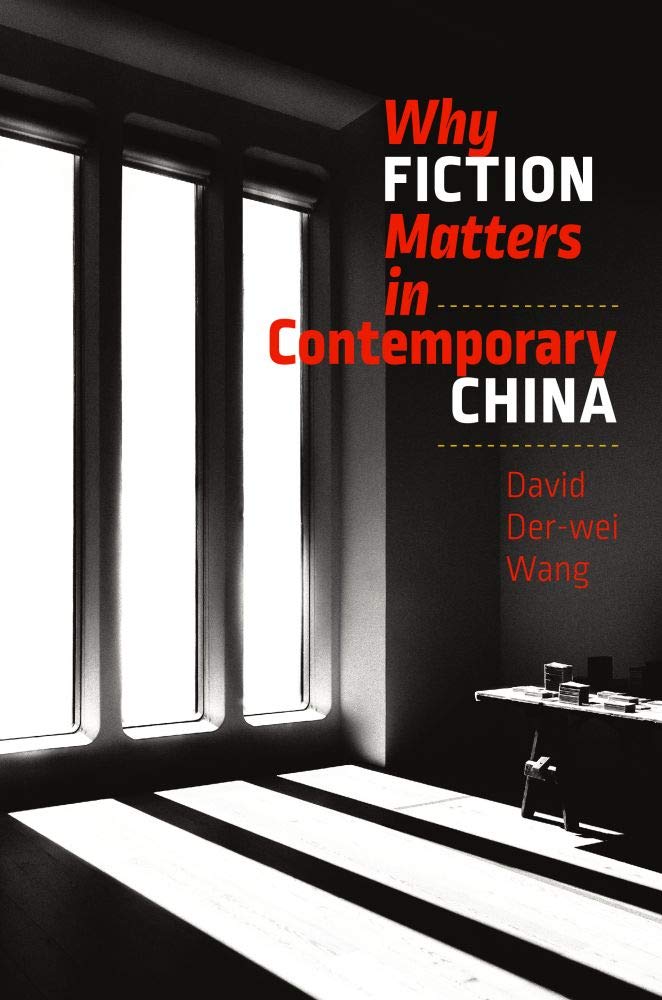
Review of Why Fiction Matters in Contemporary China by David Der-wei Wang. Brandeis, 2020.
Fiction has been integral to China’s pursuit of reinvention since the waning days of the Qing dynasty. In fiction, revolutionary-era thinkers such as Liang Qichao saw it as a means to “transform the mentality and morale of the Chinese people.” While one’s nation is a galvanizing lodestar for writers everywhere, in China there remains no subject as important as the country itself. There, Harvard’s David Der-wei Wang explains, fiction takes on relatively greater weight as an act of fabulation as opposed to fabrication. This allows it to serve as a vehicle for “both a continuation of and an intervention in history.”
Mao, and his Party, recognized that in the mastery of narrative there is the basis for a claim to legitimacy. Such mastery presents an opportunity not only to articulate but realize world-making ambitions. Thus, when Xi Jinping in 2013 exhorted his nation to “tell the good China story,” Wang sees more than propaganda at work, arguing it “deserves a serious inquiry into its cultural logic and political potential.” The “China Dream” and “community of common destiny” constitute the arc of a narrative Xi is inviting, and at times coercing, the world to fulfill. They are a belated recognition of the limits of technocratic targets to inspire.
Wang organizes China’s literary landscape into three themes: transgression, transmigration, and transillumination. The first highlights literature that describes “the intrusion of the alien – be it a foreigner, a social outcast, an ethnic minority, a people’s enemy, or an extraterrestrial creature – into a harmonious society and the way they use these encounters to test the boundaries of moral decency and political rectitude.” In transmigration, Wang reads in works that feature haunting, reincarnation, and metamorphosis, a call for a shake-up of human values both specific to China and the anthropocene generally. In the final category, Wang explores writers whose questioning of enlightenment and “divine thought” allow access to “what has long been buried as a result of cognitive complacency, cryptocracy, or psychological repression.”
Even in its ever stifled form, China’s Internet is host to a surging repository of science fiction and fantasy in which one should read more than a yearning for idle escapism; young writers that still test ideological borders; and a Sinophone community that “bring[s] into question what makes China ‘China.’” Wang explores each trend, drawing on works from across a century of modern Chinese literature, highlighting works both well known and relatively obscure. A rare omission is Folding Beijing, a parable of inequality which earned its author the Hugo Award, science fiction’s highest honor, and a first for a Chinese woman.
The surge of science fiction in recent years has shaken up a canon long-grounded in realism. While fitting with an age in which bio- and cyberpolitics are preeminent concerns, the genre also permits the fabulation of a dystopian China that counters the “optimistic official discourse of China’s rise.” The genre, Wang argues, owes a great debt to Lu Xun, who more than eight decades after his death, “still stands as the greatest source of inspiration for Chinese fiction in the new millennium.” Left unsaid is whether that is a testament to his singular talent or an indictment of a country which has progressed less than it may seem.
While narrative fiction “may no longer enjoy the kind of popularity and prestige that it did in the twentieth century,” this marginalization may have permitted a quiet flourishing just outside the range of the government’s most intense scrutiny. Nonetheless, one wishes that the book, based on a series of lectures delivered at Brandeis in 2018, offered more about fiction’s influence on popular discourse or the complicated relationship between many of China’s most prominent authors and their government. Unanswered is the extent to which China, deeply committed to expanding its soft power, sees literature as essential to this project. How does Sinophone literature’s “obsession with China” contribute to deficiencies in China’s understanding of the rest of the world; without detracting from its focus, how does foreign literature help bridge the gap?
China studies, like most disciplines, is prone to siloization. The inevitable result is a distorted conception of the country and its place in the world. Sinophone writers stand nearly alone in their effort to forge a holistic understanding. Their work, significant amounts of it readily available in English, deserves far closer engagement than it currently receives. Wang’s study, elegantly written in its own right, is a masterful guide with which to start.